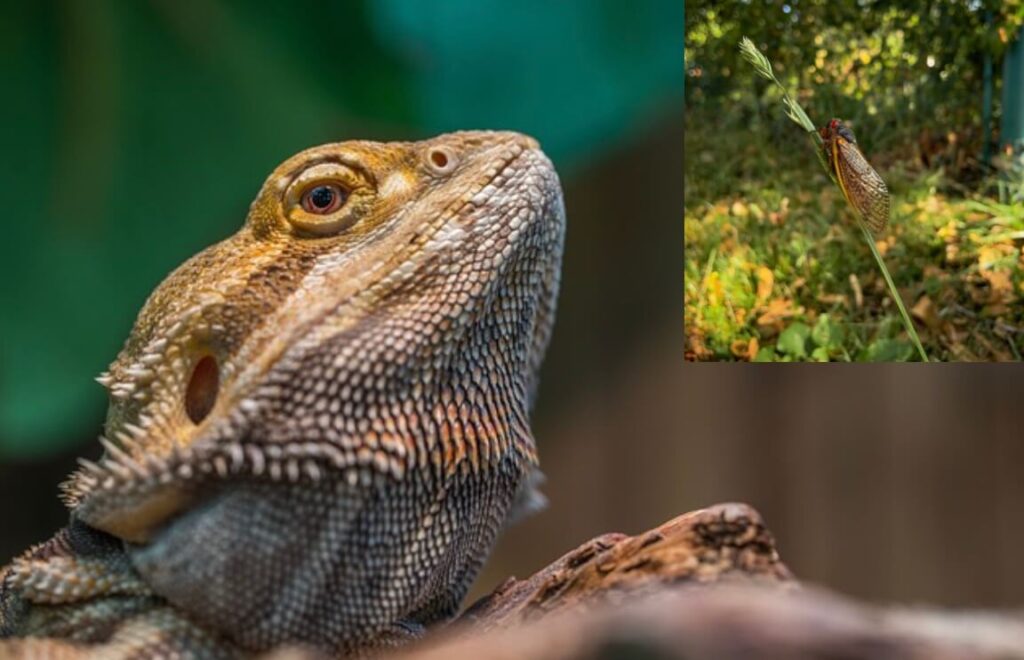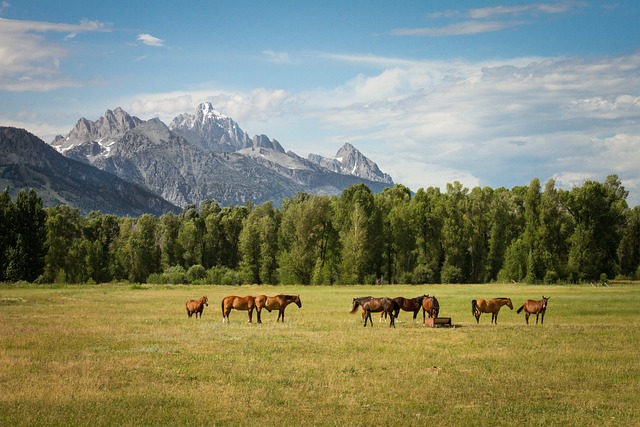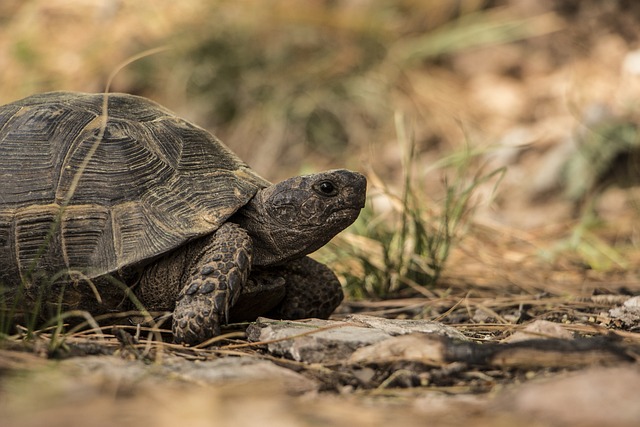If you’re wondering “Can bearded dragons eat cicadas?” the answer is a resounding yes! Bearded dragons can eat cicadas and in fact, they love eating them. Cicadas provide a wonderful source of nutrition for bearded dragons, although they do pose a few risks.
In this article, we’ll explore the nutritional value of cicadas for bearded dragons and how to feed them properly. As well, see our full guide to Bugs for bearded dragons.
Can bearded dragons eat cicadas?
- Can bearded dragons eat cicadas?
- Cicadas Nutritional Value for Bearded Dragons:
- How often should you give cicadas to your beardie?
- Potential risks of feeding cicadas to your bearded dragon:
- Should I feed my baby bearded dragon cicadas?
- What to do if your bearded dragon ingests cicadas covered in pesticides accidentally?
- Frequently Asked Questions (FAQ): Can bearded dragons have cicadas?
- Foods bearded dragons can eat:
- Getting your bearded dragon calcium:
- Vegetables to feed your bearded dragon:
- Insects to feed your bearded dragon:
- How often should you feed a bearded dragon?
- What should a bearded dragon not eat?
- Recap: Can bearded dragons have cicadas?
Cicadas Nutritional Value for Bearded Dragons:
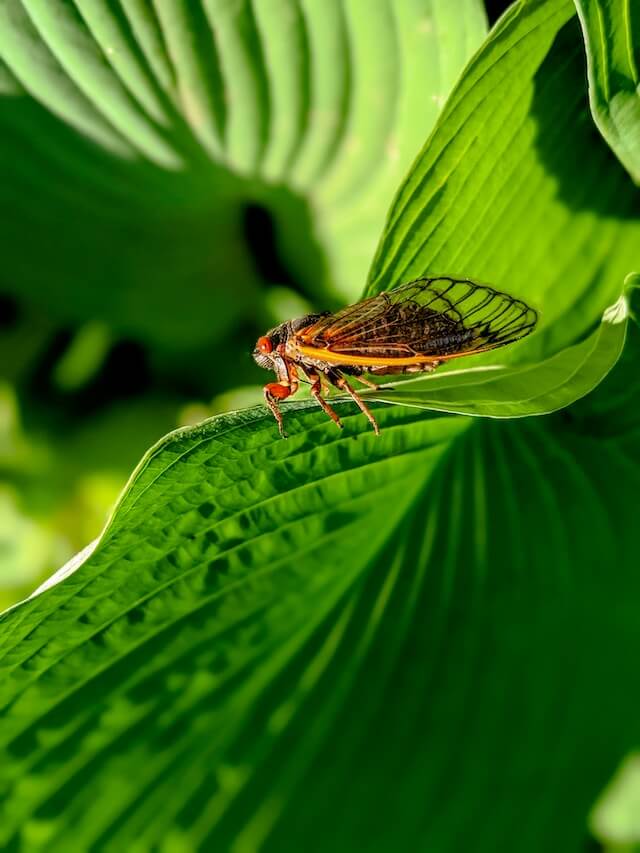
Cicadas are highly nutritious and in recent times, even humans have begun eating them. They are high in protein and low in fat and carbohydrates, making them a great source of nutrition for bearded dragons (Source: Insider).
Cicadas also contain nine essential amino acids, and a comparable amount of protein to red meat.
How often should you give cicadas to your beardie?
Because cicadas are so nutritious and high in protein, you can safely feed them to your bearded dragon daily. However, it’s hard to find cicadas out in the wild or even at some pet stores. Because of this, most pet owners regularly feed their bearded dragon insects that are more commonly found at pet stores and more cost effective, like crickets.
Potential risks of feeding cicadas to your bearded dragon:
Despite the immense nutritional value of cicadas for your dragon, there are some risks to be aware of. Like all insects caught in the wild, there’s always a chance that it could be covered in pesticides or insecticides. It’s nearly impossible to know if this is the case, and even small amounts of pesticides can be extremely harmful to your pet.
Some pet owners like to kill insects from outside and clean them. However, this will likely still leave traces of insecticide or chemicals behind. As well, dead insects always have less nutritional value for your bearded dragon than live insects.
Another risk is the hard outer shell of cicadas. These shells make chewing cicadas difficult, and can even pose a choking hazard if your beardie is overeager and decides to swallow a large cicada instead of going through the hard work of chewing properly. A good rule of thumb for feeding your bearded dragon is to give them insects no bigger than the size of the space between their eyes.
Should I feed my baby bearded dragon cicadas?
No – you probably should not give baby or even juvenile bearded dragons cicadas. When beardies are growing (up to a year old), they’re still growing in strength and size and they may find the cicada shell too difficult to chew. As well, due to their smaller size, the choking hazard is even larger for them. It’s best to avoid feeding young bearded dragons cicadas, just to be safe.
What to do if your bearded dragon ingests cicadas covered in pesticides accidentally?
Don’t panic. Immediately stop your bearded dragon from continuing to eat the cicada, and closely monitor them closely for symptoms of a strong reaction. This reaction could include:
- Bloating
- Diarrhea
- Vomiting
- Pain
- Abnormal behaviors
Give them lots of water to flush out the chemicals as well as a warm bath to calm them down and to encourage a bowel movement. If the reaction worsens or you’re noticing anything out of the ordinary, call a vet immediately.
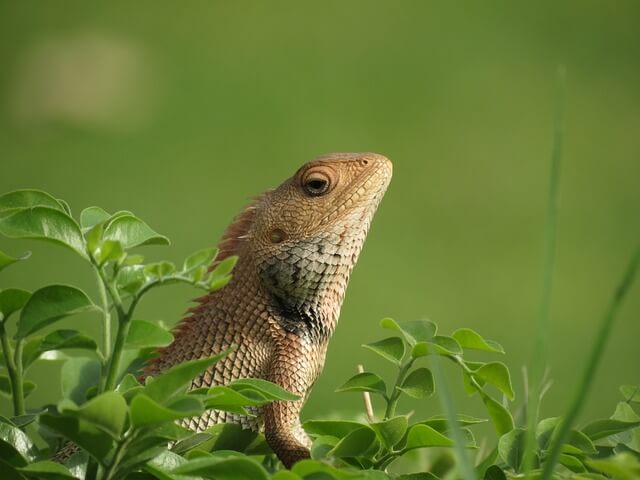
Frequently Asked Questions (FAQ): Can bearded dragons have cicadas?
What is a bearded dragon’s favorite bug?
Bearded dragons have different tastes but Dubia roaches are beloved by all bearded dragons. Crickets are probably a close second.
How do you catch cicadas?
First, locate where they are. This isn’t hard as they make high pitched sounds. Cicadas are attracted to sound – you can get a noise machine or use something like a chainsaw to attract them. Once they’re near you or on you, just pinch them by the wings to capture them. You can also use a basket type catching device if you prefer to catch many cicadas at once.
Do lizards eat cicadas?
Yes, many lizards eat cicadas as they love the taste and cicadas are highly nutritious for lizards. They are full of protein and low on harmful fats and carbohydrates.
What bugs can Beardies not eat?
Bearded dragons can not eat any bug that is venomous or that glows (fireflies, lightning bugs, or worms that glow in the dark).
Do locusts bite bearded dragons?
Yes, locusts can bite a bearded dragon but it doesn’t really harm them.
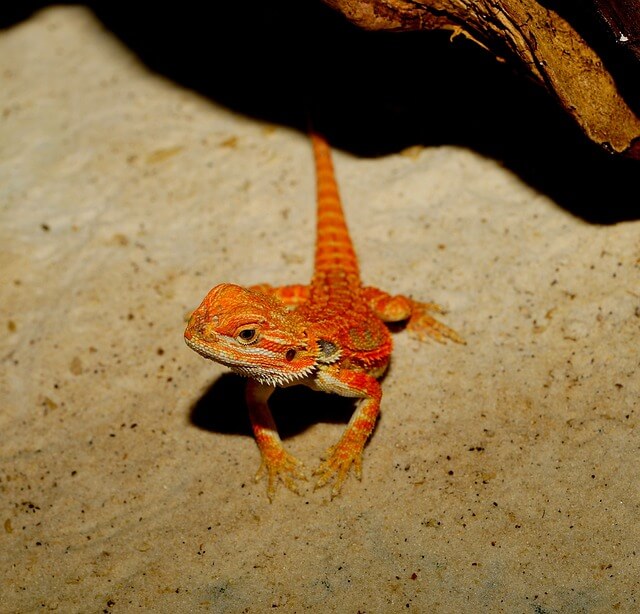
Foods bearded dragons can eat:
If you’re wondering what you should feed a bearded dragon, read our guidelines below. Bearded dragons are insectivores, which just means they thrive on insects as well as plant materials.
If you have a juvenile bearded dragon (between six and eighteen months old), give them about 80% vegetables and 20% live insects.
As your bearded dragon transitions into adulthood, give them the inverse, so 20% plant materials and 80% insects.
Getting your bearded dragon calcium:
Calcium is especially vital to a bearded dragon, especially a young one that is still growing. There are several ways to introduce more calcium into your beardie’s diet:
- Add in more high calcium vegetables like dandelions, bok choy, and collard greens.
- Dust calcium powder over their insects and vegetables to increase calcium levels.
- Make sure they’re getting their 12 hours of UVB exposure as they need this light to be able to properly absorb nutrients.
Vegetables to feed your bearded dragon:
- Peas
- Dandelion
- Green beans
- Cabbage
- Zucchini
- Pumpkin
- See our full list of vegetables to feed your bearded dragon
Note: Bearded dragons can also eat fruit in moderation. See here for a complete list of fruits bearded dragons can eat.
Insects to feed your bearded dragon:
- Crickets
- Kingworms
- Waxworms
- See our full guides to insects you can feed your bearded dragon and worms to feed your bearded dragon
Quick note: Live insects raised by you or bought from the pet store are best because they’re definitely pesticide free.
How often should you feed a bearded dragon?
During the first 3-6 months of your beardie’s life, try to feed them four to five times a day by giving them as many insects as they’d like in 10 minutes. They’re growing and need lots of protein during this stage.
Reduce the number of feedings to about two to three times a day when they’re growing into their juvenile years (between six and eighteen months).
As they become an adult, you can feed them once daily.
What should a bearded dragon not eat?
Avoid feeding your bearded dragon:
- Onions
- Leeks
- Chives
- Mushrooms
- Garlic
- Acidic fruit like oranges, lemons
- Rhubarb (can be toxic to them)
- Avocados (surprisingly, these make them ill)
- Eggplant
- Insects caught in the wild (there may be pesticides covering them)
- Venomous insects
- Dairy of any kind
- Rice and grains of any kind
- Frogs or toads
- Ham or other processed meats
Recap: Can bearded dragons have cicadas?
- Bearded dragons can eat cicadas, and they love the taste! Cicadas are highly nutritious for bearded dragons.
- Make sure to get your cicadas from a pet store or a reputable source, as those caught from outside may be covered in harmful chemicals.
- If your beardie eats cicadas covered in pesticides accidentally, don’t panic. Monitor them closely for signs of a reaction and call your vet if you notice anything abnormal.
For our full list of food to feed a bearded dragon, see our guide here.
Related articles:

